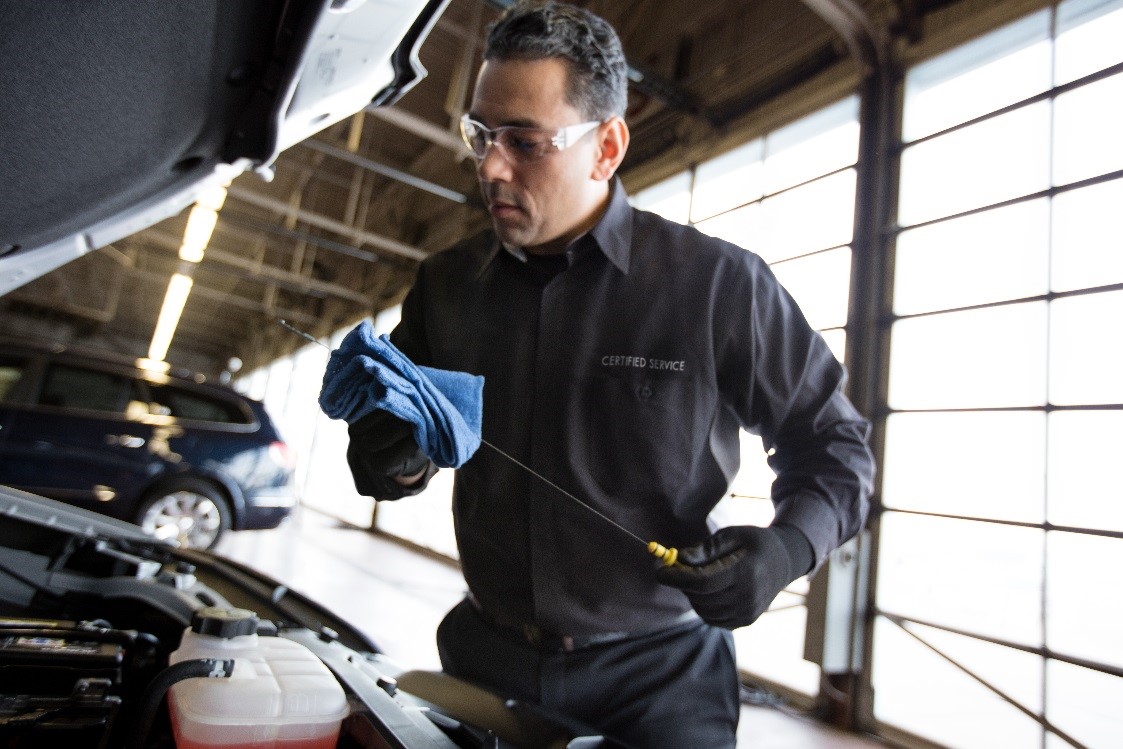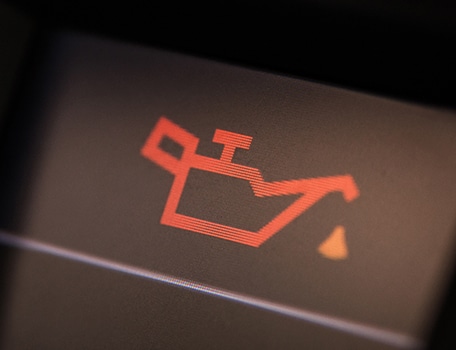You expect your vehicle to run smoothly. That means keeping your oil performing at its peak. When it's time for an oil change, your Certified Service experts are here. We offer oil changes with a four-tire rotation and a Multi-Point Vehicle Inspection.

Oil change near Caledonia, MI
CHOOSING THE RIGHT OIL
Choosing the proper grade of oil is crucial to your vehicle's performance. From conventional to full synthetic oil, your Certified Service expert will offer a range of oil types, including ACDelco Gold Conventional Oil, ACDelco dexos1™ Full Synthetic, and Mobil 1™ Full Synthetic Oil.
These oils contain a variety of characteristics that can affect your vehicle's performance, offer varying levels of engine protection, and maximize the time between oil changes.
Good
ACDelco Gold Conventional Oil
- Offers quality engine wear and corrosion protection
- Contains special additives that help your engine run smoothly
Better
ACDelco dexos1™ Full Synthetic Oil
- High resistance to oxidation, which helps keep the oil from breaking down
- Excellent low-temperature flow and pumpability during cold start-ups
- Excellent protection to help prevent formation of sludge and other harmful deposits
Best
Mobil 1 Full Synthetic Oil
- Advanced anti-wear technology for outstanding protection of critical engine parts
- Exceptional high-temperature stability helps resist oxidative thickening
- Proven to provide outstanding cold starting, lubrication and protection from wear at low temperatures

Engine Oil Life System
Many of today's vehicles are equipped with an Oil Life Monitoring System (OLMS). This system interprets your vehicle's speed and engine temperature and continuously monitors operating conditions, which helps determine when it's time for an oil change.
The OLMS monitors a number of conditions, including engine revolutions, engine temperature, and miles driven to let you know precisely when to come in for an oil change. As soon as you notice your vehicle's OLS light illuminate, it's time for service.
Checking Your Oil Level
Even with an OLS, it's important to keep track of your oil level. Always consult your vehicle's Owner's Manual for the proper procedure to check your oil level. You'll get a more accurate dipstick reading by following those instructions.

What The Certified Service Experts Look For During Your Multi-point Vehicle Inspection
- Remaining Engine Oil Life
A quick inspection will determine your vehicle's remaining oil life percentage (applicable to vehicles with the GM Oil Life System). This may be helpful, especially if you are approaching your next oil change.
- Tire Wear
Your tires are what keep you moving safely down the road. The Certified Service experts check to make sure your tires are properly aligned, balanced, and in top shape. This will help ensure the optimum performance and safety of your vehicle.
- Wiper Blades and Glass Condition
Your wiper blades are essential, especially when it's raining. The operation and condition of front and rear wipers are checked to make sure they will work well when you need them. A visual inspection of your windshield is completed to check for cracks or chips and the inspection may help prevent further damage down the road if these issues are addressed.
- Fluid Levels
Fluid levels are checked, including the brake reservoir and windshield washer fluid, to be sure they are at optimal levels.
- Brakes
To help keep your brakes performing at their best, an inspection is performed on the condition of your brake system, including lines, hoses, and the parking brake, as well as measurements of the front and rear linings.
- Battery Condition and Connections
No one wants to be stuck with a dead battery! A quick battery test will determine the health of your battery, and a visual inspection will check to be sure the battery cables and connections are in top working order
- OnStar Subscription
A brief assessment will make sure you are connected with your OnStar system subscription.
- Additional Car Inspections
An additional vehicle inspection of critical systems is performed to check for visible leaks that might indicate a concern. The condition of other vehicle components is also visually inspected.
Oil Change FAQ
Q: Should the engine oil be replaced every 3,000 miles?
A: Depending on the age of your vehicle, driving habits, and road conditions, your engine may be designed to go longer than 3,000 miles between oil changes. Always be sure to check your engine oil level regularly, even with an OLMS.
Q: Does regularly changing my oil filter help with the life of my engine?
A: Yes. An oil filter helps ensure your engine is lubricated with clean oil, which is important for optimal engine performance. Both your vehicle's oil and oil filter should be changed at least as often as recommended by your OLMS and/or Owner's Manual.
 AdChoices
AdChoices